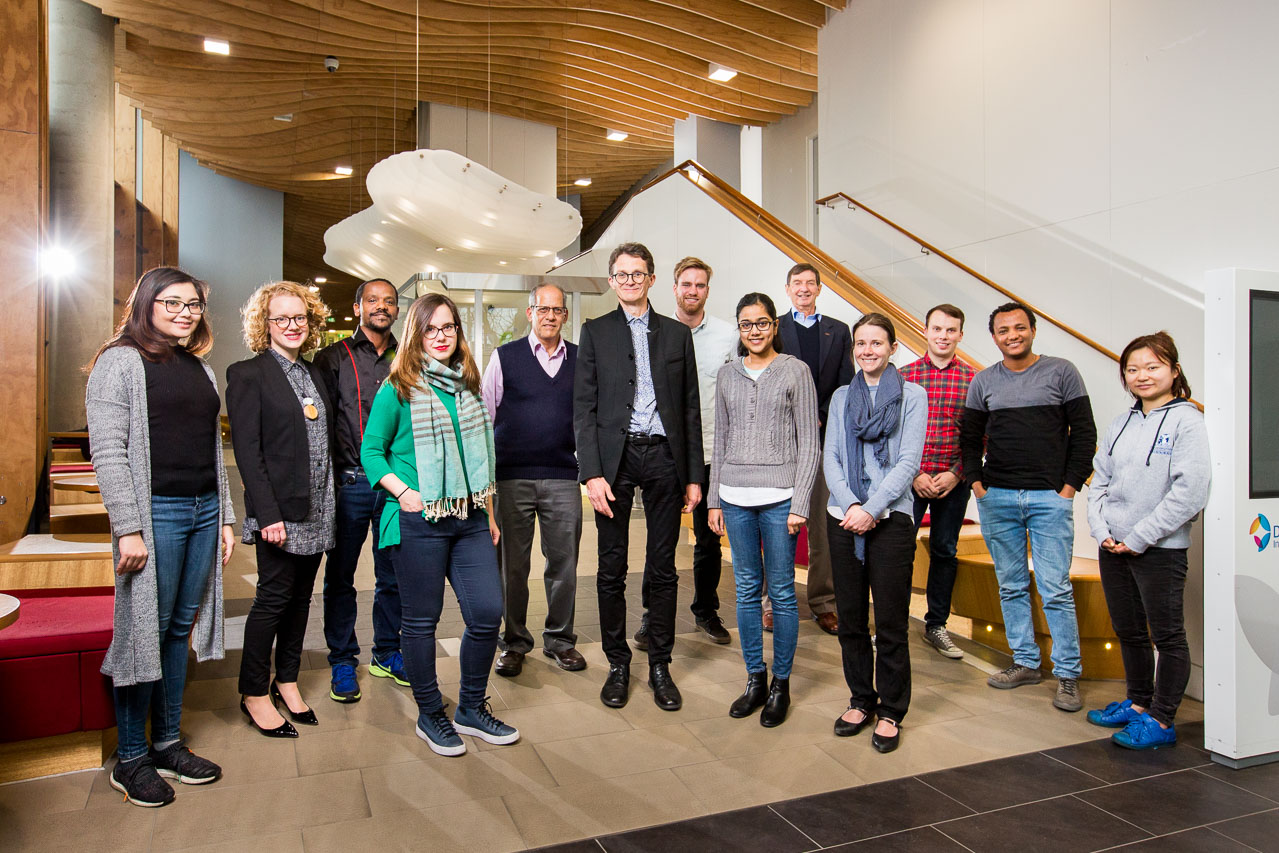-
Research Groups
Clinical Research
-
Rogerson Group
Stephen’s laboratory studies the pathogenesis and immunology of infection with the malaria parasite Plasmodium falciparum in humans. Their laboratory studies are linked to field studies, and they collaborate with leading malaria groups in Africa, Asia and Papua New Guinea.
Current Projects
-
How malaria parasite protein PfEMP1 interacts with the human immune system
Stephen’s group have an NHMRC-funded Project Grant to study how the proteins on the surface of malaria-infected red blood cells interact with cells of the immune system. The principal protein, called P. falciparum erythrocyte membrane protein 1, or PfEMP1, comes in many variants, a subset of which have been associated with severe malaria in young African children. Stephen’s group are studying the link between PfEMP1 variants and immune response in their Melbourne laboratory and with colleagues in Blantyre, Malawi, where Stephen is co-supervising a local PhD student who is studying parasites and immune responses in children with malaria.
-
Glycoasminoglycans: sugars that alter the immune response to malaria
Louise Randall has an NHMRC Project Grant to study how complex sugar molecules called glycosaminoglycans (or GAGs), produced in the placenta, shield the malaria parasite from the immune system. Louise and her collaborators at Sunshine Hospital, University of New South Wales and Imperial College London are developing techniques to purify different GAGs from placenta and to determine the placental proteins to which they are attached. Louise is studying how different versions of these sugars alter immune response to malaria parasites and how this affects immune response to malaria in the placenta, and whether high blood levels of GAGs might protect pregnant women from malaria.
-
Understanding and preventing effects of malaria on pregnant women and their babies
Stephen’s group has a long-standing interest in how malaria affects pregnant women. The parasite accumulates in the placenta and affects both mother and baby. Stephen’s group’s work covers understanding how malaria affects the function of the placenta (such as transfer of nutrients to the baby), how mothers develop protective immunity against placental malaria, and studies of how to protect pregnant women from malaria. They recently completed a big study in Papua New Guinea of malaria prevention in pregnant women and showed that their drug combination could decrease low birth weight babies by a quarter and premature deliveries by a third.
Lab Team

-
Associate Professor; Department of Medicine
-
Senior Research Officer
-
Research Officer
-
Dr Julia CuttsProject Manager
-
Wina HasangResearch Assistant
-
Agersew MengistPhD Student
-
Amaya OrtegaPhD Student
-
Anjaleena AnthonyPhD Student
-
Janavi RambhatlaPhD Student
-
Madi NjiePhD Student
-
Meseret KassaPhD Student
-
Timon DamelangPhD Student
-
David GrimsonMasters Student
-
Di ZhengMasters Student
-
Putri WaraMasters Student
-
Selorme AdukpoVisiting Scientist
-
Professor Graham BrownEmeritus Professor
-
Dunstan Group
Sarah’s group is using host and pathogen genomics to better understand infectious diseases. They perform genome-wide association studies of the host, genomic studies of the pathogen, and investigate the interaction of both genomes in tuberculosis, enteric fever and malaria patients.
Other work areas include:Enteric infections, Tuberculosis
-
Heath Group
Bill’s group’s cellular immunology research currently focuses on understanding killer T cell function with particular reference to improved vaccination strategies and understanding malarial disease.
Other work areas include:Immunology
-
Mueller Group
Research in Scott’s group is focused on examining immune responses to both acute and chronic viral infections. A particular emphasis on T cell responses and interactions with antigen presenting cells and lymphoid tissue stromal cells is currently driving the group, as well as an interest in neuro-immune interactions.
Other work areas include:Immunology
Doherty Institute researchers have long standing collaborations with malaria researchers in Papua New Guinea, Malawi and Indonesia. They study the effects of malaria infection on pregnant women, their babies, and young children, including studies of new drugs to prevent malaria in Papua New Guinea and Malawi. Working with Malawian clinicians and scientists, they study immune responses in children with severe and uncomplicated malaria. The Doherty is leading a new Centre for Research Excellence in Malaria Elimination, focused on the Asia-Pacific Region. The CRE’s broad aim is to find better tools to detect, prevent and treat malaria in vulnerable groups.
Now recruiting volunteers
There are currently no Now recruiting volunteers
Current projects
There are currently no Current projects
-
Malaria kills
500,000 people
globally each year






